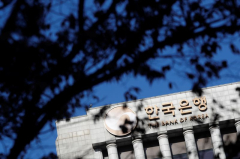A U.S. appeals court has rejected TikTok’s bid to disqualify the U.S. government’s enforced sell-off bill, which means that TikTok is now closer than ever to being removed from the country, a move that could come as early as January 19, 2025.
Though TikTok still has a few avenues to pursue in order to fend off the sell-off mandate, and it may still get help from President-elect Donald Trump, who’s vowed to save the app.
But there are a lot of “ifs” in any of these equations.
First off, the U.S. Court of Appeals for the District of Columbia Circuit has ruled that TikTok’s argument, that the TikTok sell-off bill violates the First Amendment is not valid in this case due to foreign adversary concerns, and the potential for that adversary to manipulate U.S. citizens via the app.
As per the ruling:
“The People’s Republic of China is identified as ‘a foreign adversary’ that ‘continues to threaten the national security, foreign policy, and economy of the United States’ through its control of ‘software applications’ used in the United States.”
The court found that because of China’s continued efforts to interfere in U.S. democracy via other digital platforms, which have been well documented by various investigations, the foreign adversary justification is valid, and therefore overrules TikTok’s claim of First Amendment protection.
As such, the basis of TikTok’s challenge has been dismissed, which means that TikTok now has till January 19 to either commit to a sell-off to a U.S.-based company or pull out of the country completely.
So what can TikTok do next?
Well, for one, it could seek out a U.S. partner to meet the sell-off conditions.
Last time around, when Donald Trump pushed for TikTok to be sold to a U.S. company back in 2020, an Oracle/Walmart-led consortium was eventually identified as the best local partner for the app. And that sale almost went ahead, until incoming President Biden canceled Trump’s enforced sell-off bill.
Maybe, with Trump returning to power, that deal could be reawakened, though Chinese officials have vowed to oppose any sale of the app, and the bill itself, which it sees as an overreach by the U.S. government.
Still, maybe having TikTok available in the U.S. will be better than nothing, and such a deal could be allowed to go through. Other than that, TikTok could take the case to the U.S. Supreme Court (which it’s apparently planning to do). Or it could put its faith in incoming President Donald Trump and his pledge to negate the bill under his powers of office.
In theory, Trump could issue an executive order which would effectively render the sell-off bill redundant. Though whether he would actually take that step, and undermine the Senate, remains to be seen.
Alternatively, TikTok could also apply for an extension, which would give it an additional 90 days to find a solution that addresses the government’s concerns.
That would mean that TikTok would remain availa





